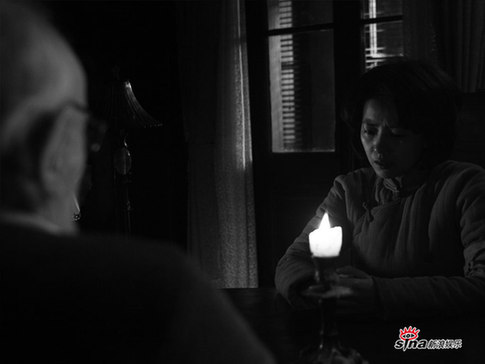|

|
|
A still from "City of Life and Death"
|
But others said they were uncomfortable with Lu's audacity to portray Japanese soldiers as human beings, who also suffered from the war.
"The crimes of the Japanese were much worse (than those showed in the movie). I especially cannot accept the image of Kakokawa," 87-year-old Nanjing citizen Zhang Zhenqing said after watching the movie.
"Perhaps Lu Chuan is too young to understand our feelings," said Zhao, who survived the massacre.
The movie also drew attention of scholars. Liu Jiangyong, a professor on China-Japan relations from the Tsinghua University, said he would like to watch Lu's movie and see how he interprets the Nanjing massacre.
"History can always be interpreted from different perspectives. The point is what kind of message the interpretation intends to convey," he said.
"I agree that families of the Japanese soldiers suffered from the war and they were also victims. But as for the Japanese soldiers, they were not. They were the perpetrators," said Liu Jiangyong.
Faced with the doubts and questions, Lu said by portraying history in human terms, he was trying to open a window for more discourse on both sides.
"Japanese soldiers used to be demonized in Chinese movies," he said. "We have been making such films for 60 years, but they never had any influence in the world or affected the world's understanding of the massacre."
"To continue to wail and whine to the world about the sufferings we had experienced will not work. We need to probe deeply into how and why the war happened," he said.
Trouble also came when Lu tried to find Japanese actors to play the roles of Japanese soldiers, officials and prostitutes.
"We first selected seven to eight famous Japanese actors, but their agencies forbade them to play in the movie. Then we turned to some less well-known actors. But still it took some time to persuade them," he said.
Lu said he deliberately recruited actors who had never set foot in China, because he wanted them to experience China with all the culture shock that Japanese soldiers had when they first landed.
All of the Japanese actors knew little about this chapter of history. Lu said most of them acknowledged the massacre but did not completely agree with him on the issues such as how many Chinese had been killed, and why and how they were killed.
"I waited to let them get the answers by themselves. There is no need for brainwash," he said.
About 100 Japanese acted in the movie. Lu said some of them almost had nervous breakdowns during the filming.
"They cried and asked to leave because the atrocities in the massacre, like raping and killing, drove them crazy. I think their pain and confusion were just what I wanted to present in the movie," he said.
At the premier in Beijing on Thursday, Nakaizumi Hideo, who played the Japanese soldier named Kadokawa, attracted great media attention. Nakaizumi, in his early twenties, took questions from the media with concise and carefully chosen words.
"I think the role of Kadokawa set an image of Japanese soldier totally different from the previous ones. I hope the role could help the public gain new understanding (of that part of history),"he said.